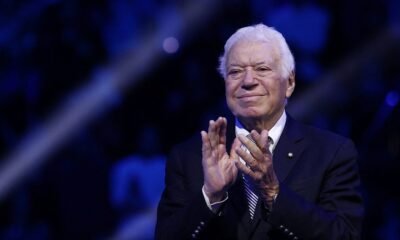INTERNACIONAL
“No te creemos, Lecornu”: el primer ministro francés fracasó en su primer intento de negociar con la oposición

El primer ministro francés, Sébastien Lecornu, intensificó este viernes sus gestos hacia la oposición en un intento por garantizar la aprobación de los presupuestos de 2026 y evitar una nueva crisis política en el país. Consciente de la fragilidad de su Ejecutivo —el cuarto en menos de un año—, el dirigente macronista optó por un mensaje de conciliación, aunque sus esfuerzos no lograron convencer a los principales partidos.
Lecornu, de 39 años, anunció que no recurrirá al polémico artículo 49.3 de la Constitución, que permite aprobar leyes sin votación parlamentaria. “Estamos en el momento más parlamentario de la Quinta República (…) no podemos imponernos por la fuerza y no se puede forzar a la oposición”, declaró. La decisión busca desmarcarse de sus predecesores, que lo usaron para imponer tanto los presupuestos de 2025 como la controvertida reforma de las pensiones que retrasó la edad mínima de jubilación a los 64 años.
“Es necesario que los partidos busquen compromisos, que cada uno haga renuncias”, dijo Lecornu, que consideró que “en los grandes asuntos a debate las cosas no son binarias”, lo que permite encontrar “terrenos de acuerdo”.
El gesto, sin embargo, no apaciguó a las fuerzas opositoras. En una ronda de contactos, Lecornu se reunió con socialistas, ecologistas, comunistas y con la líder ultraderechista Marine Le Pen. Si bien los socialistas fueron los que más tiempo pasaron negociando —más de dos horas en su despacho—, salieron sin señales de apoyo. “No estamos satisfechos, mantenemos nuestras exigencias (…) Le damos unas horas más para que reflexione sobre ellas y nos responda en el discurso de política general”, advirtió el líder socialista Olivier Faure.
Los socialistas reclaman un impuesto más fuerte al patrimonio financiero de las grandes fortunas y exigen que la mesa parlamentaria incluya también la derogación de la reforma de las pensiones de 2024, símbolo del mandato de Emmanuel Macron. “Si se pone bajo tutela del Parlamento tiene que hacerlo de la A a la Z”, insistió Faure.
Jean-Luc Mélenchon, líder de La Francia Insumisa, fue más tajante y ni siquiera participó en la ronda de negociaciones. “No te creemos, Lecornu. Solo has dicho palabras sin contenido real”, lanzó, confirmando que su bancada presentará una moción de censura.
El primer ministro también enfrenta demandas de sus potenciales aliados en la derecha moderada. Bruno Retailleau, ministro del Interior en funciones y líder de ese sector, advirtió que su apoyo depende de compromisos tangibles en lucha contra la inmigración ilegal y reducción del déficit público. Además, criticó la mano tendida a los socialistas, que en su opinión puede frenar los recortes necesarios.
Marine Le Pen, por su parte, tampoco pareció convencida. Aunque acudió con su discurso habitual sobre recortes de ayudas a inmigrantes y la reducción de la contribución francesa a la Unión Europea, señaló a Lecornu como “poco claro” y sin propuestas concretas para su sector.
La situación del primer ministro es delicada: debe nombrar este fin de semana un nuevo gobierno, que se prevé continuista, y pronunciar el martes su discurso de política general, del que dependerá su supervivencia política.
Con la deuda pública en 115,6% del PIB y la caída de los últimos dos gobiernos —el de François Bayrou en septiembre y el de Michel Barnier en diciembre—, Lecornu camina en una cuerda floja. Su apuesta es doble: mantener unido al bloque macronista y al mismo tiempo lograr consensos mínimos con la oposición. Pero la ecuación parece casi imposible: a un lado, los socialistas reclaman justicia fiscal y la reversión de las pensiones; al otro, la derecha exige mano dura migratoria y austeridad.
Por ahora, su mayor logro ha sido evitar, al menos de momento, un uso más del artículo 49.3. La pregunta es si ese gesto simbólico bastará para frenar la amenaza de nuevas mociones de censura y consolidar su frágil posición en la Asamblea Nacional.
(Con información de EFE/AFP)
Domestic,Politics,Europe,Government / Politics
INTERNACIONAL
Tras más de un siglo, aparece un ejemplar perdido de poemario de Manuel Machado
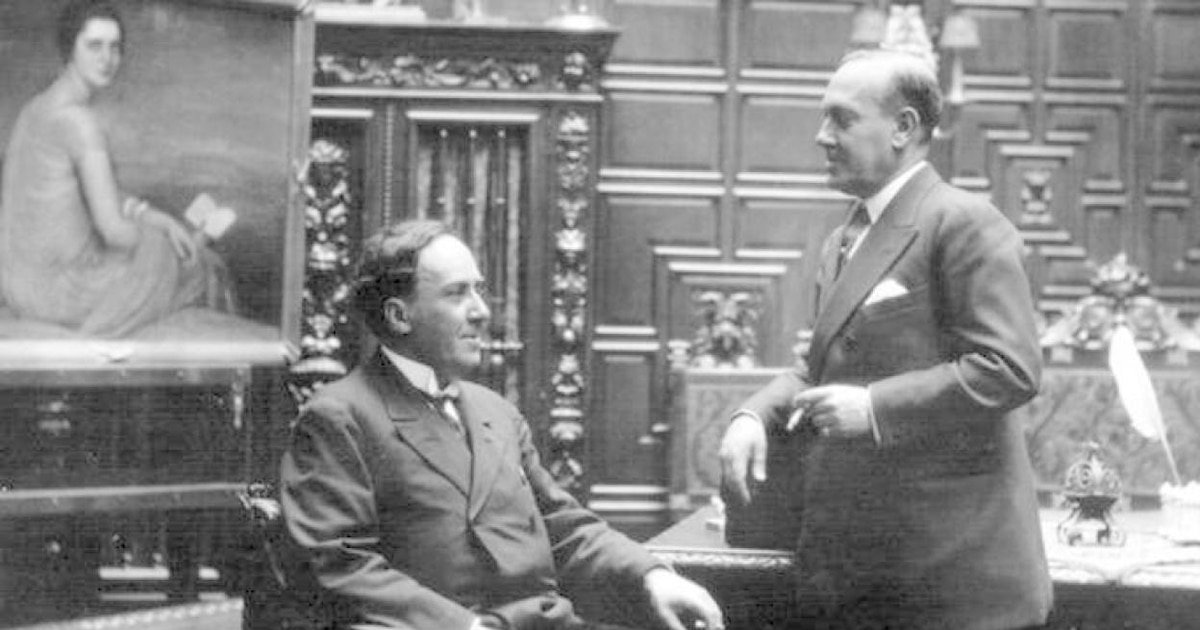
El hallazgo de un ejemplar completo de uno de los primeros poemarios de Manuel Machado, publicado en Barcelona en 1895 y considerado perdido durante más de un siglo, ha reconfigurado el panorama de la investigación sobre la lírica española de finales del siglo XIX.
Este volumen, que reúne versos del joven poeta sevillano y de su compañero de bohemia Enrique Paradas, permaneció fuera del alcance de los estudiosos hasta que, en enero de 2022, fue adquirido por el bibliófilo y antólogo Manuel Márquez de la Plata a través de una librería anticuaria catalana.
Durante décadas, la comunidad académica creyó que el único vestigio de este poemario era un ejemplar incompleto conservado en la Biblioteca Machado de la Institución Fernán González, dependiente de la Real Academia Burgense de Historia y Bellas Artes. A este volumen le faltaban la mayoría de las páginas atribuidas a Manuel Machado, lo que impedía conocer con precisión la extensión y el contenido de su contribución.
Las principales bibliografías, incluida la editada por la Biblioteca Nacional española en 1976, identificaban la obra bajo el título de ‘Etcétera’ y le asignaban 126 páginas, aunque sin advertir la posible ausencia de las últimas hojas. Otras referencias bibliográficas de los años setenta repetían el mismo título y, en algún caso, calificaban un ejemplar completo como un “volumen inencontrable”.

La confusión sobre el título y la integridad del poemario se mantuvo hasta el otoño de 1979, cuando el poeta y profesor Miguel d’Ors, tras analizar el ejemplar mutilado de Burgos, publicó en la revista académica Cuadernos de Investigación Filológica de la Universidad de La Rioja un artículo titulado “Donde se enmienda un error de las bibliografías Manuelmachadinas”.
En ese texto, d’Ors aclaró que el libro, firmado “Paradas-Machado”, no se llamaba Etcétera, sino & Versos, y que en la cubierta figuraba como & Colección de poesías. D’Ors interpretó el uso del símbolo “&” como una muestra del gusto personal de Machado por los títulos singulares, recordando otros poemas suyos titulados con signos como ‘¡…!’, ‘***’ y ‘….?’.
El análisis de d’Ors aportó detalles sobre la mutilación del ejemplar de Burgos: de las 126 páginas, las 120 primeras correspondían a versos de Paradas, mientras que las seis restantes incluían el nombre de Manuel Machado, el encabezado de una posible sección titulada ‘Bocetos’ y un único poema, ‘Ruinas’, ya publicado en el primer poemario conjunto del año anterior, ‘Tristes y alegres’.
D’Ors dedujo que resultaba improbable que la aportación de Machado se limitara a seis páginas y un solo poema, por lo que era evidente que faltaba una parte sustancial del libro. En su artículo, animó a los investigadores a buscar el poemario perdido en las bibliotecas, pero advirtió que debían rastrearlo bajo el título “&” y no “Etcétera”. A pesar de este llamamiento, ni entonces ni tras la reedición de su artículo en el libro Estudios sobre Manuel Machado (Renacimiento, 2000), se tuvo noticia de la aparición de un ejemplar íntegro.

La situación cambió radicalmente a comienzos de 2022, cuando Manuel Márquez de la Plata localizó el poemario en una oferta en línea de una librería anticuaria catalana, que lo vendía por unos pocos cientos de euros. Tras adquirirlo, comprobó que el volumen, impreso en 1895, constaba de 191 páginas, es decir, 65 páginas más que el ejemplar mutilado de Burgos.
Las poesías de Machado ocupaban desde la página 121 hasta la 191 y estaban divididas en dos secciones: ‘Bocetos’ y ‘Poesías en prosa’. En total, los versos del poeta sevillano en este poemario superaban los ochenta. Aproximadamente la mitad de estos poemas ya habían aparecido en publicaciones de la época, como La Caricatura, o fueron incluidos posteriormente en otros libros de Machado, pero la otra mitad no figuraba —al menos con el mismo inicio— en las últimas Poesías Completas publicadas en 2019 por la editorial Renacimiento.
Márquez de la Plata, movido por su admiración hacia Miguel d’Ors y en agradecimiento por los momentos de satisfacción que le habían proporcionado sus escritos, decidió enviarle por correo certificado una fotocopia de las páginas con las poesías de Machado. D’Ors, ya jubilado y residente en Galicia, recibió el envío con sorpresa y entusiasmo, y lo incorporó a su colección de primeras ediciones de su poeta favorito, a quien había dedicado años de estudio.
Tres años después, en la primavera de 2025, el periodista y escritor Víctor Olmos, que trabaja en una biografía de Manuel Machado, contactó telefónicamente con d’Ors para consultarle sobre el poemario. Durante la conversación, d’Ors le reveló que, gracias a Márquez de la Plata, disponía de una fotocopia de las páginas del libro supuestamente perdido y le relató cómo había llegado a sus manos.

Olmos, a punto de cumplir noventa años y con experiencia periodística, intuyó que el ejemplar podría ser único y constituir una primicia literaria, ya que, en el ámbito de la bibliografía, nada es definitivo, pero no se tiene constancia de otro ejemplar.
Olmos sugirió a d’Ors que narrara la historia del poemario perdido y hallado en algún medio, especialmente en un momento en que los Machado acaparaban la atención pública tras la exposición Los Machado. Retrato de Familia, celebrada en Sevilla, Burgos y Madrid.
D’Ors consideró que la iniciativa correspondía a su propietario, Márquez de la Plata. Finalmente, Olmos se puso en contacto con él, quien aceptó la propuesta de informar sobre la existencia del poemario para conocimiento de expertos, biógrafos y bibliógrafos machadianos.
INTERNACIONAL
Trump hit with setback as court rules Alina Habba unlawfully served as top federal prosecutor in New Jersey
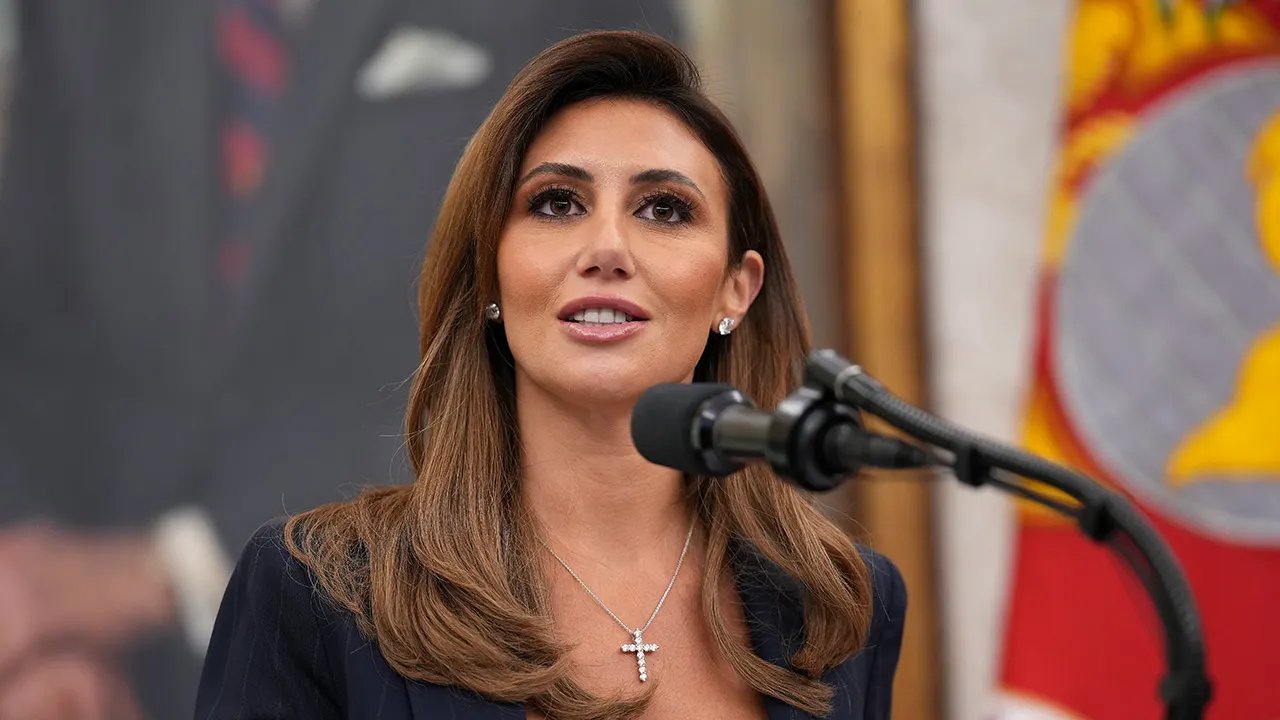
NEWYou can now listen to Fox News articles!
An appellate court found on Monday that Alina Habba is unlawfully serving as the top prosecutor in New Jersey, delivering a blow to President Donald Trump as he fights to keep his preferred nominees in charge of U.S. attorney’s offices in blue states.
The U.S. Court of Appeals for the Third Circuit said in an order that a lower court was correct to disqualify Habba, a fiery Trump loyalist who previously served as the president’s personal defense lawyer.
The Trump administration could ask for a full panel of 3rd Circuit judges to reconsider the decision, or it could turn to the Supreme Court to weigh in. Fox News Digital reached out to the Department of Justice and a Habba spokesperson for comment.
A three-judge panel for the 3rd Circuit heard arguments on Habba’s appointment in October and grilled a Department of Justice lawyer over the unconventional way Trump and Attorney General Pam Bondi reinstalled Habba as U.S. attorney after her initial, temporary appointment expired.
TRUMP APPOINTS HABBA AS ‘ACTING’ US ATTORNEY AFTER JUDGES OUSTED HER
President Donald Trump sits in the courtroom with lawyers Christopher M. Kise and Alina Habba during his civil fraud trial at New York State Supreme Court on Oct. 17, 2023, in New York City. (Doug Mills-Pool/Getty Images)
Habba is one of several names who became jammed up in court proceedings over allegations that Trump sidestepped the Senate and improperly exploited loopholes in federal vacancy laws to keep his preferred prosecutors in place.
Habba’s case was the furthest along in the court process, but Lindsey Halligan and Bill Essayli, temporary U.S. attorneys in Virginia and California, respectively, are among those also facing high-stakes court challenges to their appointments.
The panel that heard Habba’s case comprised two appointees of former President George W. Bush and one appointee of former President Barack Obama.
The judges voiced skepticism of DOJ lawyer Henry Whitaker’s claims that Bondi had authority to fill the vacancy for the U.S. attorney of New Jersey after Trump fired the court-appointed one. Whitaker said the administration simply took advantage of «overlapping mechanisms» afforded to it by Congress.
TRUMP’S US ATTORNEYS IN BLUE STATES FACE LEGAL CHALLENGES THAT COULD UPEND KEY PROSECUTIONS
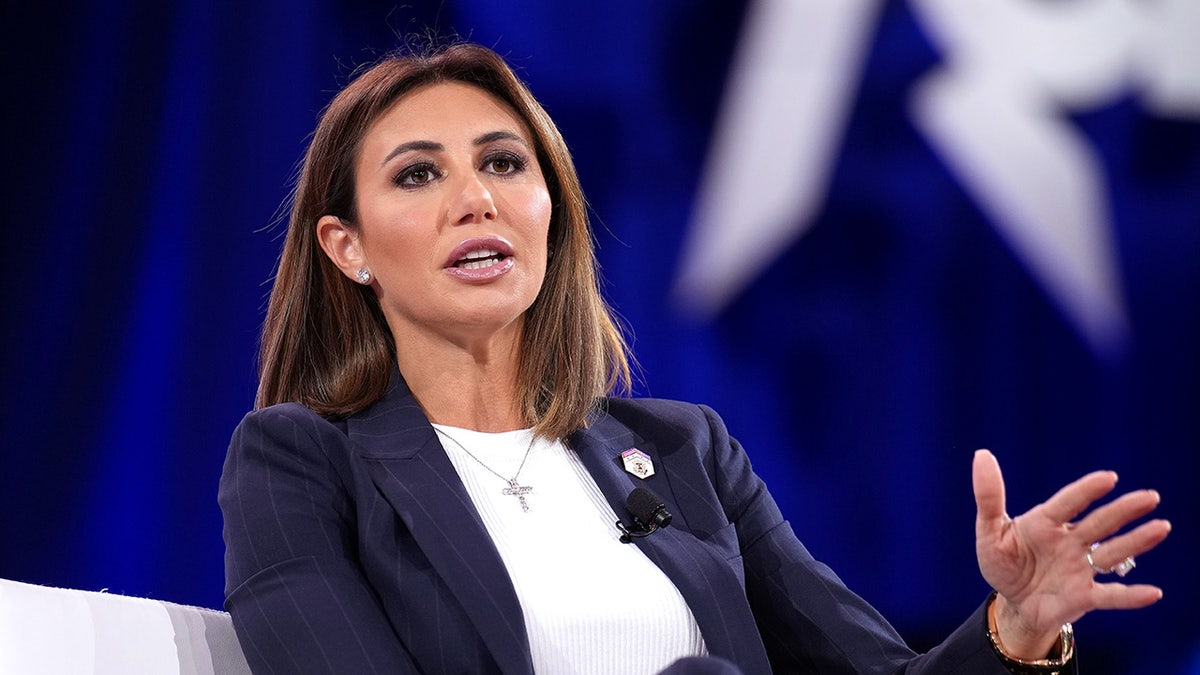
Alina Habba speaks during a panel discussion at the Conservative Political Action Conference on Feb. 20, 2025, in Oxon Hill, Maryland. (Andrew Harnik/Getty Images)
«In this case, the executive branch admittedly took a series of precise and precisely timed steps not to evade or circumvent those mechanisms but rather to be scrupulously careful to comply with them,» Whitaker said.
One of the judges said during the oral arguments that he viewed Habba’s case as unusual and possibly unconstitutional.
«Would you concede that the sequence of events here, and for me, they’re unusual, would you concede that there are serious constitutional implications to your theory here, the government’s theory, which really is a complete circumvention, it seems, of the appointments clause?» the judge asked.
Veteran D.C. lawyer Abbe Lowell, known for his involvement in lawsuits challenging the Trump administration, represented the defendants contesting Habba’s appointment.
Two sets of defendants facing run-of-the-mill charges brought the challenge to Habba, saying she should not be allowed to prosecute them because she was an invalid U.S. attorney.
TRUMP NOMINEES SQUEEZED BETWEEN ‘BLUE SLIPS’ AND BLUE OBSTRUCTION
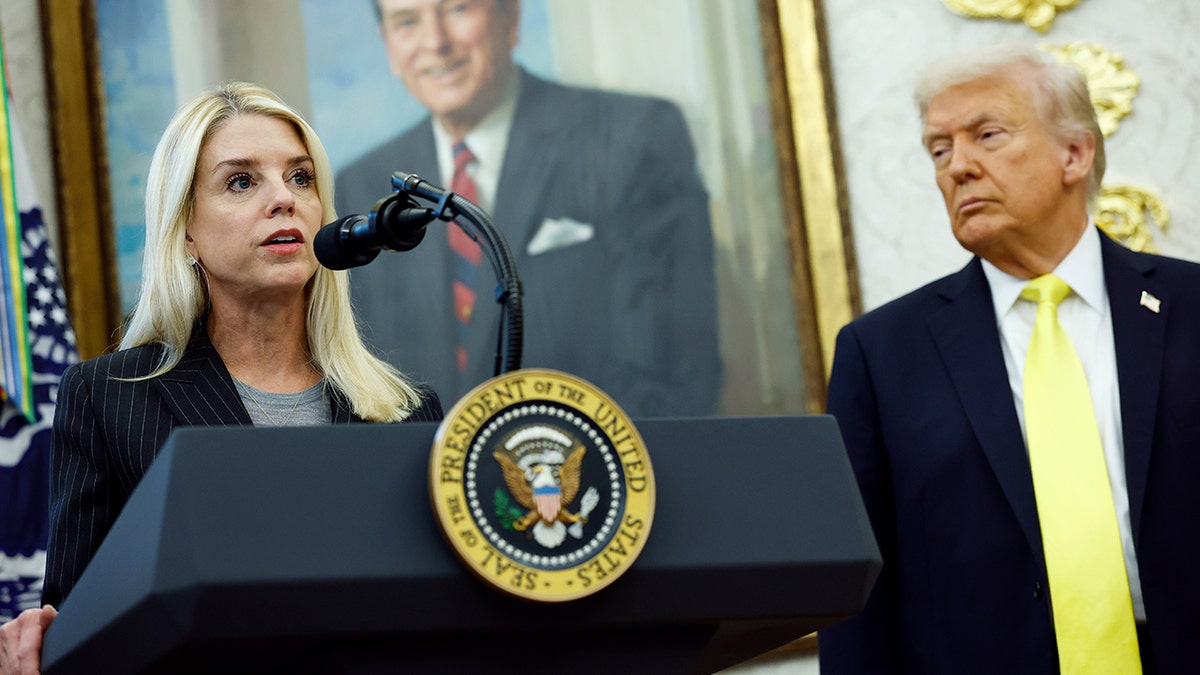
U.S. Attorney General Pam Bondi speaks as President Donald Trump looks on during a press conference in the Oval Office of the White House on Oct. 15, 2025, in Washington, D.C. (Kevin Dietsch/Getty Images)
Habba had no path to Senate confirmation, in part because New Jersey’s Democratic senators, Cory Booker and Andy Kim, did not approve of her through the Senate’s blue slip tradition.
CLICK HERE TO GET THE FOX NEWS APP
That precedent has drawn Trump’s ire as Senate Judiciary Committee Chairman Chuck Grassley, R-Iowa, stands firmly behind blue slips, which require home state senators to approve of U.S. attorney and district judge nominees.
Trump recently conveyed, through his firing of former U.S. Attorney Erik Siebert, that earning Democratic senators’ approval could be disqualifying in his view, setting up a stalemate with the upper chamber over his nominees in blue states.
This is a breaking new story and will be updated.
justice department,judiciary,alina habba,donald trump,pam bondi,new jersey
INTERNACIONAL
EU official warns ‘impunity’ for Russia would mark ‘historic mistake of huge proportions’
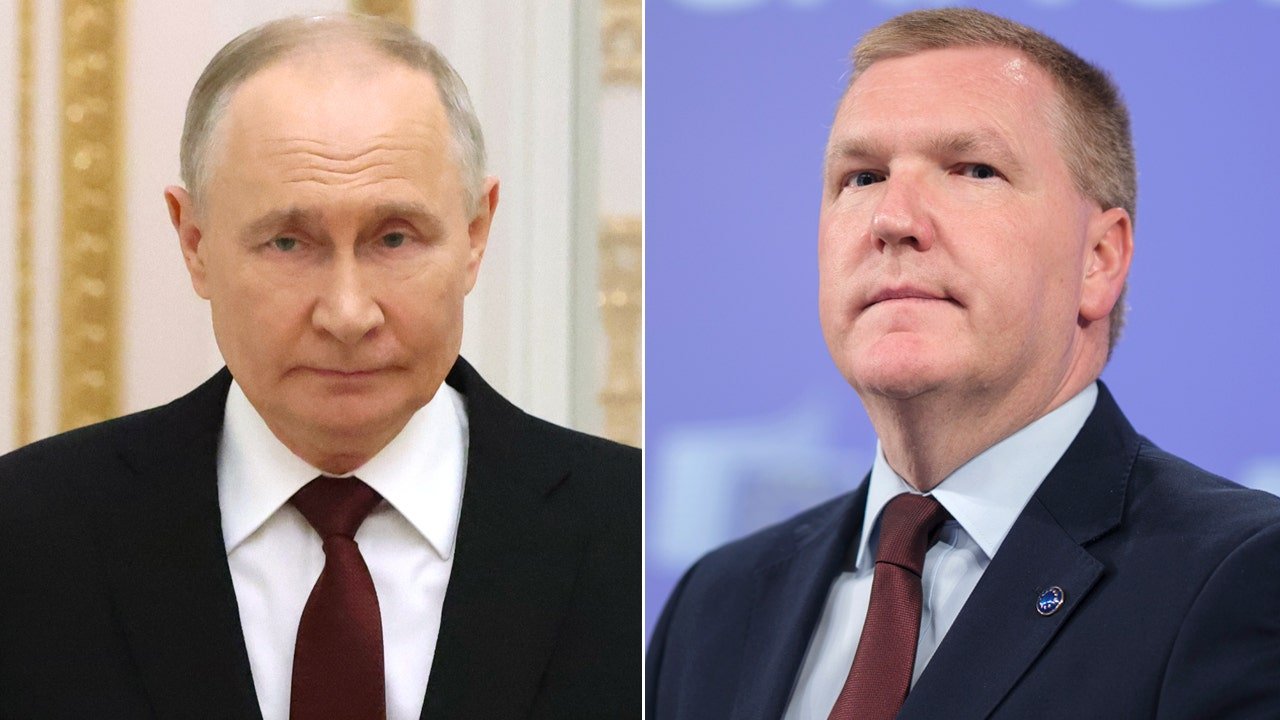
NEWYou can now listen to Fox News articles!
As President Donald Trump’s administration aims to help broker peace between Russia and Ukraine, a European Union official asserted that Russia must face accountability for its «crimes,» according to a report.
European Commissioner for Democracy, Justice, the Rule of Law and Consumer Protection Michael McGrath warned against allowing «impunity,» opining that it «would be a historic mistake of huge proportions.»
«I don’t think history will judge kindly any effort to wipe the slate clean for Russian crimes in Ukraine,» McGrath said, according to Politico. «They must be held accountable for those crimes and that will be the approach of the European Union in all of these discussions.
«Were we to do so, to allow for impunity for those crimes, we would be sowing the seeds of the next round of aggression and the next invasion,» he noted, according to the outlet. «And I believe that that would be a historic mistake of huge proportions.»
UKRAINE PEACE TALKS PRODUCTIVE AS EX-GOVERNMENT OFFICIAL SAYS COUNTRY RETHINKING ‘UNCOMPROMISING’ STANCE
Left: Russian President Vladimir Putin enters the hall just after his talks with the Hungarian prime minister during his meeting with young scientists at the Kremlin on Nov. 28, 2025 in Moscow, Russia; Right: EU Commissioner for Democracy, Justice, the Rule of Law and Consumer Protection Michael McGrath talks to media about: «Simpler EU digital rules and new digital wallets to save billions for businesses and boost innovation» in the Berlaymont, the EU Commission headquarter on Nov. 19, 2025 in Brussels, Belgium. (Left: Contributor/Getty Images; Right: Thierry Monasse/Getty Images)
«We cannot give up on the rights of the victims of Russian aggression and Russian crimes,» McGrath asserted, according to the outlet. «Millions of lives have been taken or destroyed, and people forcibly removed, and we have ample evidence.»
EX-CIA STATION CHIEF WARNS PUTIN USING TALKS TO GAIN LEVERAGE AS UKRAINE DELEGATION MEETS TOP TRUMP OFFICIALS

President Donald Trump speaks to the press aboard Air Force One en route to Washington, D.C., on Nov. 30, 2025. (Pete Marovich/Getty Images)
Meanwhile, Ukrainian President Volodymyr Zelenskyy has expressed gratitude toward the Trump administration.

Ukrainian president Volodymyr Zelensky speaks at a press conference with Pedro Sanchez, Spanish prime minister (not pictured), during his official visit to the headquarters of the Spanish government in Palacio de la Moncloa. (Alberto Gardin/SOPA Images/LightRocket via Getty Images)
CLICK HERE TO GET THE FOX NEWS APP
«I am grateful to the United States, to President Trump’s team, and to the President personally for the time that is being invested so intensively in defining the steps to end the war,» he noted in part of a post on X.
world,ukraine,russia,the european union,donald trump

 CHIMENTOS3 días ago
CHIMENTOS3 días agoWanda Nara involucrada en el escándalo de su abogado, Payarola, contó toda su verdad: “Yo fui…”

 POLITICA2 días ago
POLITICA2 días agoPatricia Bullrich lleva la disputa por el fútbol al Congreso y pone bajo la lupa a la conducción de la AFA

 CHIMENTOS3 días ago
CHIMENTOS3 días ago¡Urgente! Internaron a Rocío Marengo por un problema en su embarazo de 8 meses: «Vieron cosas que preocuparon»



